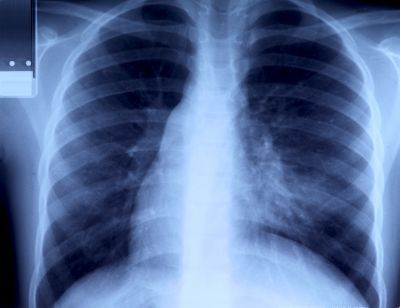Thousands of Britons die due to late cancer diagnosis

Up to 10,000 people die of cancer every year in England because they are diagnosed too late, a top government health official said Monday.
Professor Mike Richards said earlier detection could save between 5,000 and 10,000 lives and blasted the level of successful diagnoses as "unacceptable".
Richards, the National Cancer Director, said the "typically British" reluctance to bother the doctor with health complaints could be partly to blame for the poor survival rates.
He said: "These delays in the patient presenting with symptoms and cancer being diagnosed at a late stage inevitably costs lives.
"The situation is unacceptable so the first big step has been to understand why the delays occur."
The findings are to appear in the forthcoming British Journal of Cancer.
"Efforts now need to be directed at promoting early diagnosis for the very large number (over 90 percent) of cancer patients who are diagnosed as a result of their symptoms, rather than by screening.
"The size of the prize is large - potentially 5,000 to 10,000 deaths that occur within five years of diagnosis could be avoided every year," said an excerpt published in the Guardian newspaper.
Richards' conclusions came after a study of Britain's three biggest cancer killers: lung, which killed 34,589 people in 2007; colon which claimed 16,087 lives; and breast cancer which killed 12,082 people.
The professor said Britons were traditionally reluctant to bother their doctor with a complaint which could turn out to be minor.
His concerns were supported by a Cancer Research UK study which found 40 percent of people put off appointments because they feared they could be wasting the doctor's time.
Professor Steve Field, chairman of the Royal College of GPs, or General Practioners, said the findings were "really important".
"(They) reinforce the need for GPs to put a lot of effort into ensuring that patients present (their symptoms) and have access to GPs, and that we pick up the symptoms early on, and also reflect if we can do things even better in this crucial area of healthcare, which we can."
Katherine Murphy, director of the Patients' Association, said: "Patients will sometimes tell us that they had been going to see their GP for six to nine months with, say, a pain in their stomach and were told to go to the pharmacy and buy an over-the-counter medicine (and later are found to have cancer)."
gj/mt/tw
Subscribe to Independent Premium to bookmark this article
Want to bookmark your favourite articles and stories to read or reference later? Start your Independent Premium subscription today.

Join our commenting forum
Join thought-provoking conversations, follow other Independent readers and see their replies